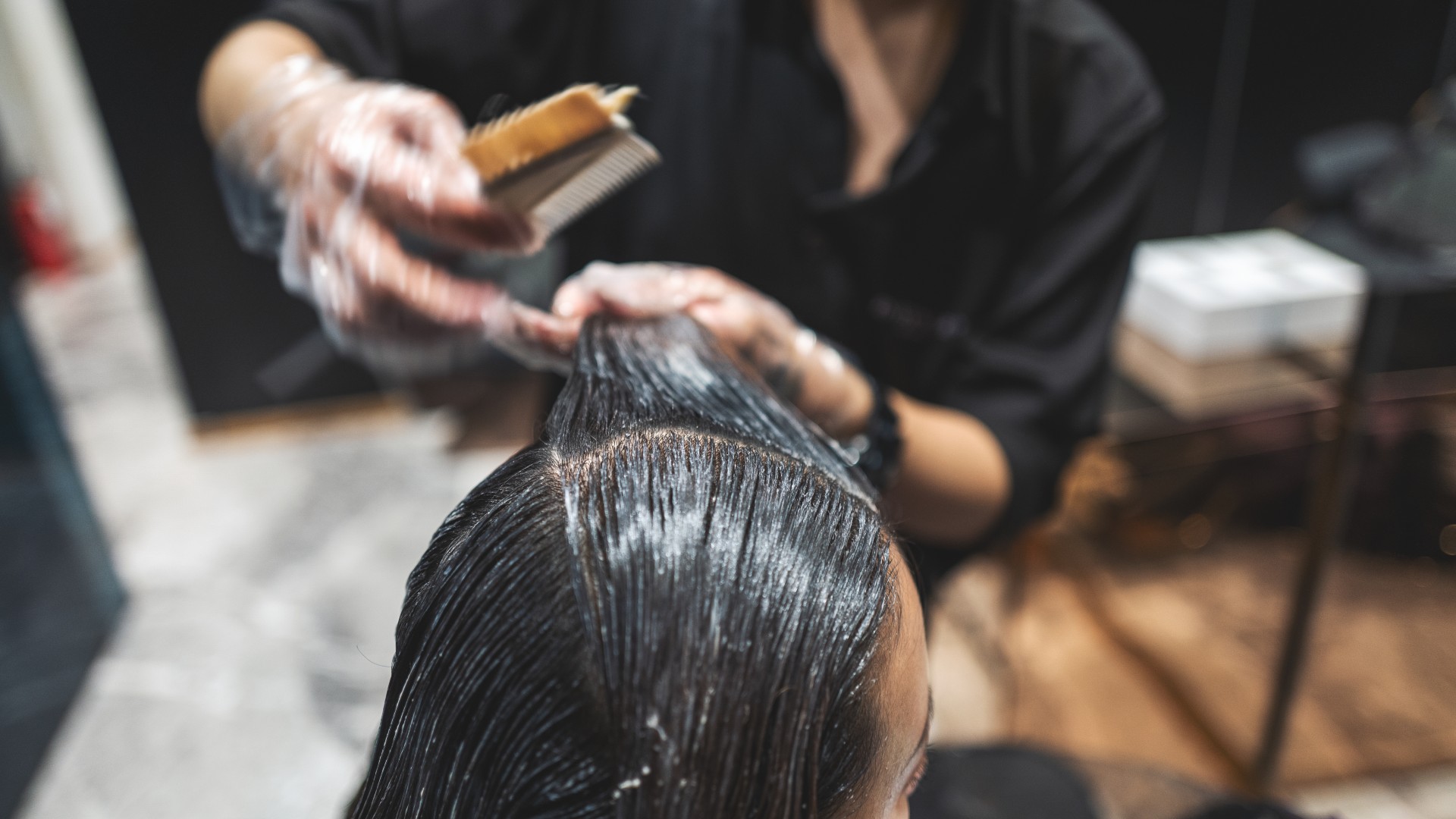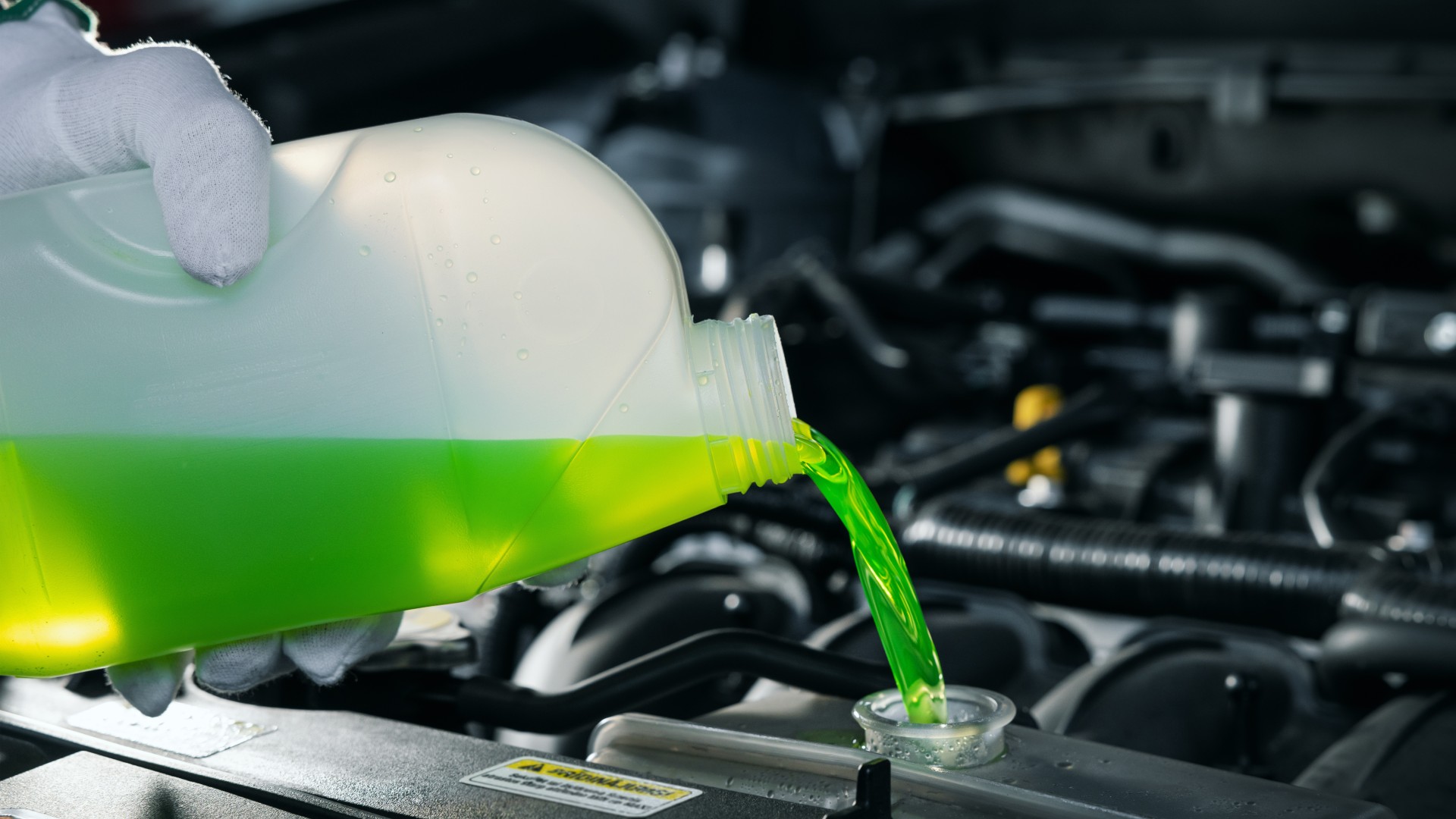
A woman developed kidney damage on three separate occasions after receiving hair-straightening treatments at a salon. Her doctors say one of the products used likely caused the organ injuries.
The 26-year-old woman visited a salon to receive the popular hair treatment in June 2020, April 2021 and July 2022. She'd had no previous health problems, but on the day of each visit, she experienced vomiting, diarrhea, fever and back pain. She reported feeling burning on her scalp during the hair treatment and developed ulcers on her head shortly afterwards.
Doctors found she also had raised levels of creatinine in her blood, a sign that her kidneys were malfunctioning. She had blood in her urine but showed no other signs of infection, and her urinary system, which includes the kidneys, bladder, ureters and urethra, was not blocked, a computed tomography (CT) scan showed.
At each salon appointment, the woman's hair was treated with a straightening cream containing the chemical glyoxylic acid. This likely caused her scalp to burn and ulcerate, her doctors suggested in a report of her case, published March 21 in The New England Journal of Medicine. Based on experiments in mice, they also theorized that the acid absorbed through her skin and reached her kidneys, which caused damage upon being broken down.
Related: Chemicals in plastics and cosmetics tied to preterm birth risk
The authors have "demonstrated convincingly that applying [hair straightening creams containing glyoxylic acid] topically can cause kidney damage," Dr. Joshua David King, an associate professor of medicine and pharmacy at the University of Maryland who was not involved in the case, told Live Science in an email.
"It would seem wise to ban the use of glyoxylic acid in these products and request that manufacturers find another, safer compound," he said.
Hair-straightening and smoothing products are popular cosmetic treatments that temporarily change the shape of a person's hair fibers so they straighten out and are less prone to frizz. Typically, a straightening solution is applied to the hair and then "sealed" in using heat, from a blow dryer, for instance.
Historically, these products have often contained the toxic chemical formaldehyde, which can be released into the air as a gas once heated. Inhaling formaldehyde can cause side effects, such as a burning sensation in the eyes and nose, wheezing and nausea. It can also potentially increase a person's risk of developing certain types of cancer if they're exposed to high doses or for long periods of time. Formaldehyde has been banned in Brazil, Canada and the European Union as an active ingredient in these types of hair products, and the U.S. Food and Drug Administration (FDA) is expected to follow suit in April 2024.
Recently, glyoxylic acid has been used in hair-straightening products as a potentially safer alternative to formaldehyde. However, anecdotal reports hint that these products may be associated with kidney injuries. For example, a recent study of 26 patients in Israel with kidney injury found that eleven had used products containing derivatives of glycolic acid, a chemical that is broken down into glyoxylic acid in the liver.
To better understand the association between glyoxylic acid and kidney damage, doctors involved in the recent case conducted a lab experiment with mice. They applied the straightening product used at the woman's salon, which contained 10% glyoxylic acid, to the backs of five mice. They then repeated the same procedure using petroleum jelly on another five mice, which acted as a comparison group.

The next day, the doctors found that the glyoxylic acid mice carried "elongated" crystals of a chemical compound called calcium oxalate monohydrate in their urine, while the petroleum-jelly group did not.
Related: Chemical found in 1,000 processed foods may harm the immune system
"It's known that humans metabolize glyoxylic acid to oxalic acid, which binds calcium to form calcium oxalate crystals," John Bucher, a retired senior scientist at the U.S. National Institutes of Health (NIH), who was not involved in the report, told Live Science in an email. "If these accumulate to sufficiently high levels they can cause damage to the kidney and result in the symptoms reported," Bucher said.
The crystals in the mouse urine resembled those seen in people who have ingested the toxic alcohol ethylene glycol, which is found in many household and industrial products, including antifreeze.
The mice exposed to the hair product also had "significantly" higher creatinine levels in their blood than the comparison mice within 28 hours of exposure. The exposed mice also had dense deposits of calcium oxalate monohydrate in their kidneys, unlike the petroleum jelly group, the researchers found.
"These needle-shaped crystals can injure the kidney on a microscopic level, causing kidney failure in large enough poisonings," King said.
In the recent case, the woman's kidney function improved "rapidly" after each salon visit, so in her case the effects seem short-lived.
Nevertheless, the doctors who treated her believe the case should act as a warning of the potential dangers of using glyoxylic acid in hair-straightening or smoothing products. They said the products should be "avoided" and potentially "discontinued from the market."
This article is for informational purposes only and is not meant to offer medical advice.
Ever wonder why some people build muscle more easily than others or why freckles come out in the sun? Send us your questions about how the human body works to community@livescience.com with the subject line "Health Desk Q," and you may see your question answered on the website!







